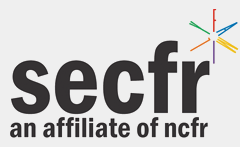Proposal Focus
Research
Presentation Type
Presentation
Abstract
Extension agents with Family and Consumer Sciences (FCS) programmatic responsibilities come from a variety of backgrounds but are expected to implement educational programs across FCS knowledge areas. This study examined [state] University Extension personnel’s perceived importance of and perceived ability related to human development competencies. There was a significant difference between how specialists (state-level) and agents (county-level) perceived the importance of three of the five human development concepts. Most agents’ perceived their ability across the human development competencies to be average or just above average. Using the perceived importance and perceived ability data from the agents, next steps include piloting a novel rank-order method which will yield data concerning the relative need for training and the percent of agents needing training in each competency. This information can be used to provide targeted professional development to agents.
Keywords
human development, competencies, Extension, professional development
Location
Yorkshire
Start Date
4-4-2020 9:00 AM
End Date
4-4-2020 9:50 AM
Included in
Adult and Continuing Education and Teaching Commons, Home Economics Commons, Other Social and Behavioral Sciences Commons, University Extension Commons
Determining Human Development Competency Training Needs of FCS Extension Professionals
Yorkshire
Extension agents with Family and Consumer Sciences (FCS) programmatic responsibilities come from a variety of backgrounds but are expected to implement educational programs across FCS knowledge areas. This study examined [state] University Extension personnel’s perceived importance of and perceived ability related to human development competencies. There was a significant difference between how specialists (state-level) and agents (county-level) perceived the importance of three of the five human development concepts. Most agents’ perceived their ability across the human development competencies to be average or just above average. Using the perceived importance and perceived ability data from the agents, next steps include piloting a novel rank-order method which will yield data concerning the relative need for training and the percent of agents needing training in each competency. This information can be used to provide targeted professional development to agents.

